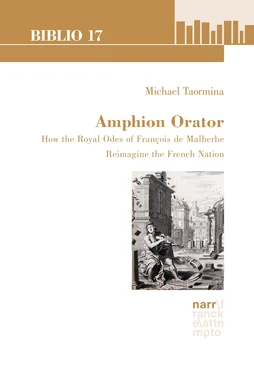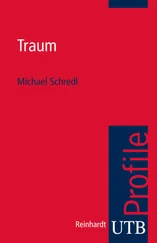Michael Taormina - Amphion Orator
Здесь есть возможность читать онлайн «Michael Taormina - Amphion Orator» — ознакомительный отрывок электронной книги совершенно бесплатно, а после прочтения отрывка купить полную версию. В некоторых случаях можно слушать аудио, скачать через торрент в формате fb2 и присутствует краткое содержание. Жанр: unrecognised, на английском языке. Описание произведения, (предисловие) а так же отзывы посетителей доступны на портале библиотеки ЛибКат.
- Название:Amphion Orator
- Автор:
- Жанр:
- Год:неизвестен
- ISBN:нет данных
- Рейтинг книги:4 / 5. Голосов: 1
-
Избранное:Добавить в избранное
- Отзывы:
-
Ваша оценка:
- 80
- 1
- 2
- 3
- 4
- 5
Amphion Orator: краткое содержание, описание и аннотация
Предлагаем к чтению аннотацию, описание, краткое содержание или предисловие (зависит от того, что написал сам автор книги «Amphion Orator»). Если вы не нашли необходимую информацию о книге — напишите в комментариях, мы постараемся отыскать её.
Amphion Orator — читать онлайн ознакомительный отрывок
Ниже представлен текст книги, разбитый по страницам. Система сохранения места последней прочитанной страницы, позволяет с удобством читать онлайн бесплатно книгу «Amphion Orator», без необходимости каждый раз заново искать на чём Вы остановились. Поставьте закладку, и сможете в любой момент перейти на страницу, на которой закончили чтение.
Интервал:
Закладка:
This competition of the more virtuous subjects for honor in the service of king and country underpins the “universal audienceuniversal audience,” a normative concept of rhetorical argumentation. As Perelman and Olbrects-Tyteca explain in The New Rhetoric: A Treatise on Argumentation , a speaker evokes the universal audienceuniversal audience when he presupposes unanimous agreement, by all fair-minded and rational beings, with arguments considered “compelling,” “self-evident,” and possessing “an absolute and timeless validity, independent of local or historical contingencies” (Perelman 32). Such universality is a matter of right, not of fact, since “one can always resort to disqualifying the recalcitrant by classifying him as stupid or abnormal” (Perelman 31 & 33, their emphasis). Consequently, an elite minority, even when limited to one perfect being, may validly serve as a model for the universal audienceuniversal audience, that is, as the norm to which all men should conform: “the elite audience sets the norm for everybody” (Perelman 34). The criteria which elevate an elite group to the level of a universal norm may include rationality, a disinterested commitment to scientific truth, or a state of divine grace—all “exceptional and infallible means of knowledge” (Perelman 33). Virtuevirtue is another such criterion. It, too, is a normative quality that may define the universal audienceuniversal audience, and it is the most relevant of such criteria to the royal odes. The function of the universal audienceuniversal audience is twofold: it preserves the “universalistic” impulses of monarchypolitymonarchy, “capable of swallowing up whole cities and ‘nationnations,’” while mitigating the incompatibility of this form of rule with “any notion of civic community” (Newell 172), and it lays the foundation for the national communitynationnational community. The virtuevirtue of magnanimitymagnanimity is the defining characteristic of the national communitynationnational community envisioned by the royal odes. When these poems address the monarch, the nobility and, through them, the French nationnation as a whole, they address a composite audience made up of persons “differing in characterethoscharacter, loyalties, and functions” (Perelman 21). However, given their lofty ambition, they cannot simply reflect the attitudes and values of an existing community. Partisan interests divide these constituencies against one another. The odes must also forge a new community united by a universal value. By making an appeal to the virtuevirtue of magnanimitymagnanimity, the odes construct a universal audienceuniversal audience of great soulmagnanimitygreat souls who by right will constitute the civic community of the new nationnation. The king’s magnanimitymagnanimity (because it is superlative) precludes any share in sovereignty but (because it is a virtuevirtue) sets the norm for everybody.
Furthermore, the competition for honor in service of king and country is a universal ethosethos because it accommodates all who desire to be virtuous and aspire to be recognized as such. In theory, therefore, even commoners are not excluded. What matters is the function one serves in the body politicbody politic, as this will determine which virtuevirtue one possesses. Of course, not all virtuevirtues count equally as a contribution to the goodcommonwealththe good of the state, and even among those that do count, there exists a sliding scale (Newell 175). Nevertheless, in Les Six Livres de la République , Chapter 6, Book 6, BodinBodin, Jean explains that royal monarchypolitymonarchy, the most perfect form of government, institutes “harmonic justicevirtuejustice” (BodinBodin, Jean 575), an early modern version of distributive justicevirtuejustice that “gently mixes nobles and commoners, rich and poor, with discretion, however, so that the nobles retain some advantage over the common people” (BodinBodin, Jean 575). It is not simply that such an arrangement prevents the masses from becoming embittered and trying to overthrow the state (BodinBodin, Jean 574). Rather, the harmonious distribution of honors and offices is considered the best and most just because, like AristotleAristotle’s golden mean, it incorporates and balances the extremes, that is, the partial and imperfect justicevirtuejustice of democratic and of aristocratic regimes (BodinBodin, Jean 570). A commoner, then, provided he contributes to the goodcommonwealththe good of the state, belongs by right to the civic community of the nationnation. He may not necessarily perform the same functions, nor share in honor to the same degree, as a nobleman, for whom the highest offices of the state were typically reserved. But we know in fact that French kings often promoted talented men from below.
2. Quasi-divine virtue virtue. Closely bound up with the superlative, this second predicate elevates the monarch above and beyond all subjects and gives the scope of his (or her) rule a theoretically universal reach, while at the same time fostering a universal patriotic ethospatriotismpatriotic ethos that encompasses all subjects in a new civic community. In Chapter 13, Book 3, of the Politics AristotlePolitics, AristotleAristotle says of the one best man: “a person of this order may very well be like a god among men” (3.13 1284a10). The royal odes unapologetically compare Henri IV and Louis XIII to gods (JupiterJupiter, MarsMars) and demi-gods (HerculesHercules, AchillesAchilles) and Marie de Médicis to goddesses (AthenaAthena, AphroditeAphrodite, AstraeaAstraea). Such comparisoncomparison usually underscores a particular quality—e.g. couragevirtuecourage, phronēsis phronēsis, beautyvirtuebeauty, justicevirtuejustice—which the Bourbon protagonists share with their more illustrious models. But the implicit hyperbole of such a comparisoncomparison is directly linked to the superlative degree of virtuevirtue ( aretē huperbolē ). What makes the hyperbole apt is the near identity of the one best man with God. In a brilliant article, Stephen Menn shows that “AristotleAristotle takes both ‘the Goodcommonwealththe good’ and ‘ nous ’ to be names of the essence of God” (Menn 546), identifying the Greek concept nous [mind, thought, intention, rationality] with the virtuevirtue of reason that exists itself-by-itself and orders the universe (Menn 561 & 566). Menn argues that our intellectual perception of this virtuevirtue, that is, our knowledge of it, is identical with the object of knowledge—which is just this virtuevirtue (“its pure immaterial being is pure energeia,” Menn 568). In other words, AristotleAristotle, according to Menn, does not posit an identity of knower with object, but an identity of the activity of knowing with the self-subsisting rational activity that orders the universe (Menn 569). To paraphrase Menn, human beings may possess the virtuevirtue of reason which God possesses, but God possesses it “in a stronger way, by being it” (Menn 569). Human beings possess it “though a nonidentity relation, by perceiving it, since the virtuevirtue we possess is the same as the object we perceive” (Menn 569). Against this backdrop, one can see why quasi-divinity would be predicated of a monarch, that is, the one best man whose virtuevirtue is superlative. On the sliding scale of virtuevirtue, the monarch is not identical with God but participates as fully as any human can. A monarch’s virtuevirtue participates so fully in the self-subsisting virtuevirtue that orders all things as to suggest identity. Hyperbole is the appropriate figure of thought to convey the feelings of wonderwonder evoked by a being nearly identical with God. Rhetorical manuals of antiquity and the Renaissance favored hyperbole for its capacity to strike the imagination, “making speech lively [by] leaving something for the audience to figure out” (BiesterBiester, James 107). Hence Malherbe’s persistent use of hyperbole to praise the virtuevirtue of the Bourbons is not mere exaggeration. The audience is supposed to infer the monarch’s divinity from the superlative degree of his (or her) natural virtuevirtue, although such an identity is logically denied. That is why the royal odes treat the Bourbons as demi-gods.
Читать дальшеИнтервал:
Закладка:
Похожие книги на «Amphion Orator»
Представляем Вашему вниманию похожие книги на «Amphion Orator» списком для выбора. Мы отобрали схожую по названию и смыслу литературу в надежде предоставить читателям больше вариантов отыскать новые, интересные, ещё непрочитанные произведения.
Обсуждение, отзывы о книге «Amphion Orator» и просто собственные мнения читателей. Оставьте ваши комментарии, напишите, что Вы думаете о произведении, его смысле или главных героях. Укажите что конкретно понравилось, а что нет, и почему Вы так считаете.












